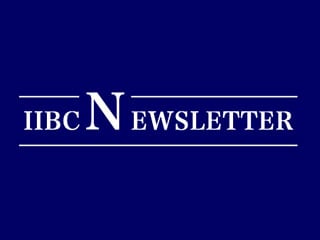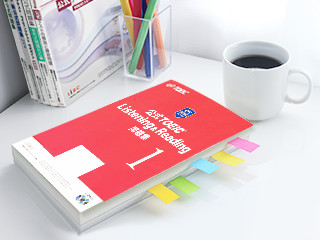English Upgrader+ ツールから選ぶ
ビジネストークテンプレート
採用面接
採用面接の際に役立つ表現です。事前にしっかりと準備しておきましょう。

- Amanda:
- So, according to your resume, you've been with Sakura Clothing for seven years. What can you tell us about that?
- Kota:
- I first joined the company as the manager for their Osaka store, followed by two other stores in Fukuoka and Nagoya. I've increased sales in all three stores. For the last four years I've worked as a development manager at its Tokyo headquarters, overseeing the planning and launch of new stores in eastern Japan.
- Amanda:
- Considering their speed of expansion, that must have been a great responsibility. What do you consider your most significant accomplishment?
- Kota:
- Well, I've been successful in all seven stores that I've been involved in as a development manager. I've achieved this mainly by increasing the efficiency of the distribution process and researching carefully about the potential market for each store. The revenue for these seven stores is actually 20-50 percent higher than the average for all Sakura stores.
- Amanda:
- That's quite impressive. What would you say are your strengths and weaknesses?
- Kota:
- I think what sets me apart is that I work very well under pressure and that I'm a great leader.
One of the key elements of successful store management is to motivate your staff and build a strong team, and I've been able to do that with everyone I've worked with. My weakness might be that I'm very energetic.
Sometimes I find it difficult to do routine work for long periods of time.
- Amanda:
- I see. And finally, why are you interested in this position?
- Kota:
- I'm looking for the opportunity to take on new and challenging assignments that will allow me to use my experiences in retail as well as international communication skills I gained while studying in the U.S. While Sakura was a really great company to work for, it is essentially a domestic company and has no plans to expand overseas. I've always been interested in working for a global company and decided it was time to move on. I believe I'm the best person for the job and that my qualities and experiences would be great assets to your company.
- Amanda:
- OK, I think I've covered everything I wanted to.
Thank you for coming today. I'll get back to you within a week.
解説
What can you tell us about that?
- What can you tell us about...?は、直訳すると「~について何を話せますか」、つまり「~について少し説明していただけますか」という意味。Why did you leave your previous job?(なぜ前職を辞めたのですか)と聞かれることもありますが、その場合は、決して前の職場を悪く言わないほうに注意しましょう。この例では採用側が応募者の履歴書を見て、それを元に質問していますが、いきなりTell me about yourself.(自己紹介をしてください)と聞くこともあります。そう聞かれた場合は、経歴、強み、志望動機などを簡潔にまとめて話しましょう。通常、面接者は既に履歴書に目を通しているはずなので、事実関係そのものよりも、何についてどう話すかがポイントになります。この例の回答では、仕事の内容とあわせてI've increased sales in all three stores.(3店舗すべてにおいて売上を伸ばしました)と成果についても話していますが、このようにアピールになりそうなことは積極的に伝えると良いでしょう。
What do you consider your most significant accomplishment?
- significantは「重要な」「意義深い」、accomplishmentは「業績」「成果」を指し、これは「これまでにあなたが達成した最も大きな成果は何だと思いますか」という質問です。こう聞かれた場合は、謙遜することなく、自分の業績をアピールしましょう。その際、結果だけを伝えるのではなく、自分が取ったどんな行動によってどういう成果が上がったのか、という因果関係が伝わるように説明するのが重要です。
What would you say are your strengths and weaknesses?
- strengths and weaknessesは「強みと弱み」という意味で、この質問は長所と短所を尋ねるものです。What do/don't you do well?という聞き方をすることもあります。答える側は、ほかの質問同様に、応募している仕事や会社にとってプラスになりそうな内容をピックアップして回答するように心がけましょう。
I think what sets me apart is that I work very well under pressure and that I'm a great leader.
- set A apart from Bは本来「AをBから離す」という意味ですが、しばしば「AがBの中で際立つ」という意味で使われ、His sense of responsibility sets him apart from others.(彼の責任感は人より抜きん出ています)のように言います。この例のようにset...apartだけでも同様の意味になります。work (very) well under pressureは「プレッシャーに(とても)強い」という意味。ほかにも長所をアピールする表現は多数ありますが、hardworking(努力家な)、punctual(時間を守る)、focused(集中力がある)、experienced(経験豊かな)、team player(協調性がある人)、people person(社交的な人)などは覚えておくと便利です。
My weakness might be that I'm very energetic.
- 自分の短所について話すのは難しいことですが、長所と短所は常に裏表の関係にあり、「物は言い様」。この例では、飽きっぽいことをenergetic(エネルギッシュな)という肯定的な言葉で表すことで、ネガティブな印象を与えることを避けています。仕事が遅い場合なども、slowではなくattentive to details(細かいことに注意を払う)といった言い方をすると良いでしょう。
And finally, why are you interested in this position?
- この質問では「なぜこの仕事に興味があるのですか」と、志望動機を尋ねています。これに近いWhy should we hire you?も面接でよく聞かれますが、こちらは直訳すると「弊社はなぜあなたを雇うべきなのですか」となり、つまり「弊社にどう貢献できますか」という意味です。応募者は、採用側の立場に立って自分を一人の人材として見たときの「売り」をアピールしましょう。
I think I've covered everything I wanted to.
- このせりふは直訳すると「伺いたいことは全部伺えたと思います」、つまり「面接は以上です」という意味。この例ではここで面接が終わっていますが、最後に採用側がIs there anything you'd like to know?(何かご質問はありますか)と聞くこともよくあります。その場合、応募者は聞きたいことがあれば自由に質問して構いませんが、面接は自分を売り込む場なので、給与や福利厚生といった待遇の話題は持ち出さないほうが得策。待遇や条件は重要な事柄ですが、その相談や交渉はjob offer(内定)が出てからにしましょう。
 ライター 伊東 裕子 Yuko Ito
ライター 伊東 裕子 Yuko Ito
プロフィール
愛媛県出身。早稲田大学卒業後、月刊誌『English Journal』(アルク)の編集に携わった後、フルブライト奨学生としてボストン大学院プリント・ジャーナリズム学科修士課程にて学ぶ。帰国後、米系経済通信社で英文記者職を経て、英文誌『Mini World』編集長に就任。2003年中経出版にて雑誌『English Zone』を創刊。2009年株式会社グローパルを設立、雑誌『English Plus』(成美堂出版)監修、『オタリーマン』シリーズ他のマンガ企画、書籍・デジタルコンテンツの制作&プロデュースを行っている。
http://www.glopal.co.jp/![]()
English Upgrader+はTOEIC Programの出題内容とは関係ありません。日々の英語学習にお役立て下さい。
ポッドキャストに収録されている各種情報のご案内は、音声収録時のままです。現在のサイトやテスト情報とは食い違う可能性があります。







